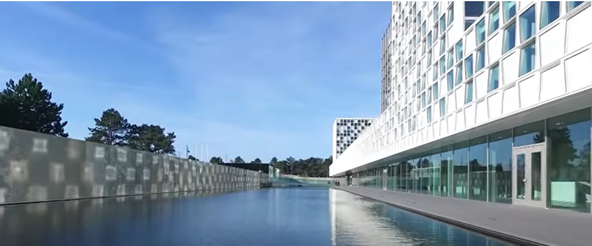Intuitions and International Judging: An Interdisciplinary Study of “Thinking-Fast” Decision-Making on the International Criminal Bench (JUDGEHUNCH)

JUDGEHUNCH is a three – year research project that investigates the role that judicial intuition as a personal trait and psychological phenomenon plays in the act of international criminal judging. The project’s overall goal is to offer a broader and more realistic view of the role and use of judges’ intuitions in their decision-making at international criminal tribunals and to understand how the use of intuitions in judicial deliberations and reasoning affects the impartiality of judges as well as unjust or biased outcome of international criminal trials. The project is funded by the European Union – NextGenerationEU.
Coordinator: University of Maribor Faculty of Law
Host research organization: University of Amsterdam Faculty of Law
Person responsible (Principal Investigator): Assistant Professor Dr. Gregor Maučec
Eligible period: 15 June 2023 – 14 June 2026
Background
For the past few decades, there has been an ever-increasing judicialization of international criminal law. International criminal courts and tribunals have issued thousands of judgments and other decisions of immense political, diplomatic and security importance and convicted many prominent political figures and wartime leaders for genocide, crimes against humanity, war crimes and other serious international crimes and offences under their jurisdiction. Yet we lack a clear understanding of how judges’ intuitive-cognitive processes at these courts affect their behaviour and rulings. Detecting links and influences between judicial intuitions and international judging can pave the way for a more legitimate, accurate, impartial, and effective international adjudication based on the rule of law. Focusing on the International Criminal Court, International Criminal Tribunals for the former Yugoslavia and Rwanda, and the Kosovo Specialist Chambers, JUDGEHUNCH explores how international criminal judges’ intuitive considerations and fast thinking in deciding cases contribute to their decision-making at all stages of the international criminal process, and to the international criminal trials’ outcomes. In essence, the project researches how much of these judges’ work is actually based on “System 1”, “fast” type of thinking and is thus more prone to cognitive biases. To establish the nature and extent of intuitive decision-making by judges of international criminal courts, JUDGEHUNCH uses a unique interdisciplinary approach, employing doctrinal legal analysis, legal philosophical theories of judging, as well as insights from sociology, social psychology and behavioural science. This research at the intersection of international law, psychology and behavioural science will provide a rule of law-rooted systematic and empirically grounded analysis of the judicial cognitive-intuitive realities that are pertinent to the cases before international criminal tribunals. To add further clarity and depth to doctrinal research and legal analysis, JUDGEHUNCH draws on a series of extended interviews and a questionnaire (including hypothetical case scenarios and “Cognitive Reflection Test”) with international judges to further explore whether they make judgments in predominantly intuitive rather than deliberative/reflective ways. The combined empirical approach will allow for better understanding of judicial decision-making in international criminal courts. It will form the basis/provide a framework for a more comprehensive, refined and interdisciplinary decision-making theory pertinent to international (criminal) adjudication. This important aspect of international (criminal) judging which has so far been little explored will therefore push forward the knowledge frontier. The in-depth empirical examination of judicial decision-making processes at international criminal courts will also help identify their legitimizing and effectiveness strategies.
Objectives
The primary objective of JUDGEHUNCH is to consider how international judges’ intuitive reactions contribute to their decision-making at all stages of the international criminal process and accordingly affect their impartiality. To achieve this overarching aim, the project thus has four specific objectives:
- Compare and analyse written rules and principles as they appear in the international criminal courts’ statutes and Rules of Procedure and Evidence as well as their case law that elaborates or clarifies these provisions to determine the extent to which they impinge on or limit the judges’ intuitive mental processes in their judging.
- Gather and analyse qualitative and quantitative data on the international criminal judges’ conceptions and usages of intuition in their work to provide new empirical insights on the topic.
- Synthesize the findings of data collection with legal assessment of the relevant statutory rules and principles and related case law of international criminal tribunals to map out and analyse the reality of “thinking-fast” judging and its effects on judicial impartiality and rulings at international criminal courts.
- Increase awareness and knowledge of the role and impact of judicial intuitions as nonrational and legally irrelevant factors in international criminal judging among relevant scientific and criminal justice management/judicial policy making communities, and the general public.

Co-funded by the European Union and the Republic of Slovenia. Views and opinions expressed are however those of the author(s) only and do not necessarily reflect those of the European Union or the Republic of Slovenia. Neither the European Union nor the Republic of Slovenia can be held responsible for them.
Sofinancirata Evropska unija in Republika Slovenija. Izražena stališča in mnenja so le od avtorja(-ev) in ne odražajo nujno stališč Evropske unije ali Republike Slovenije. Niti Evropska unija niti Republika Slovenija ne moreta biti odgovorna zanje.